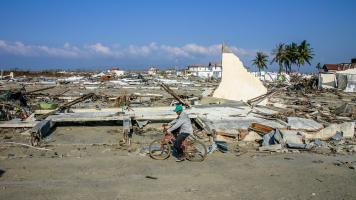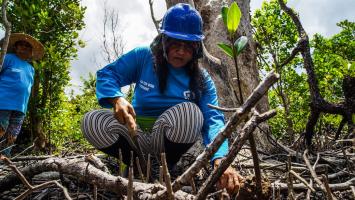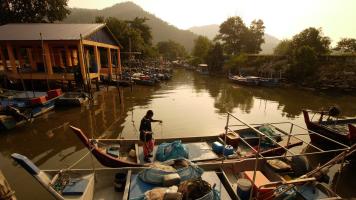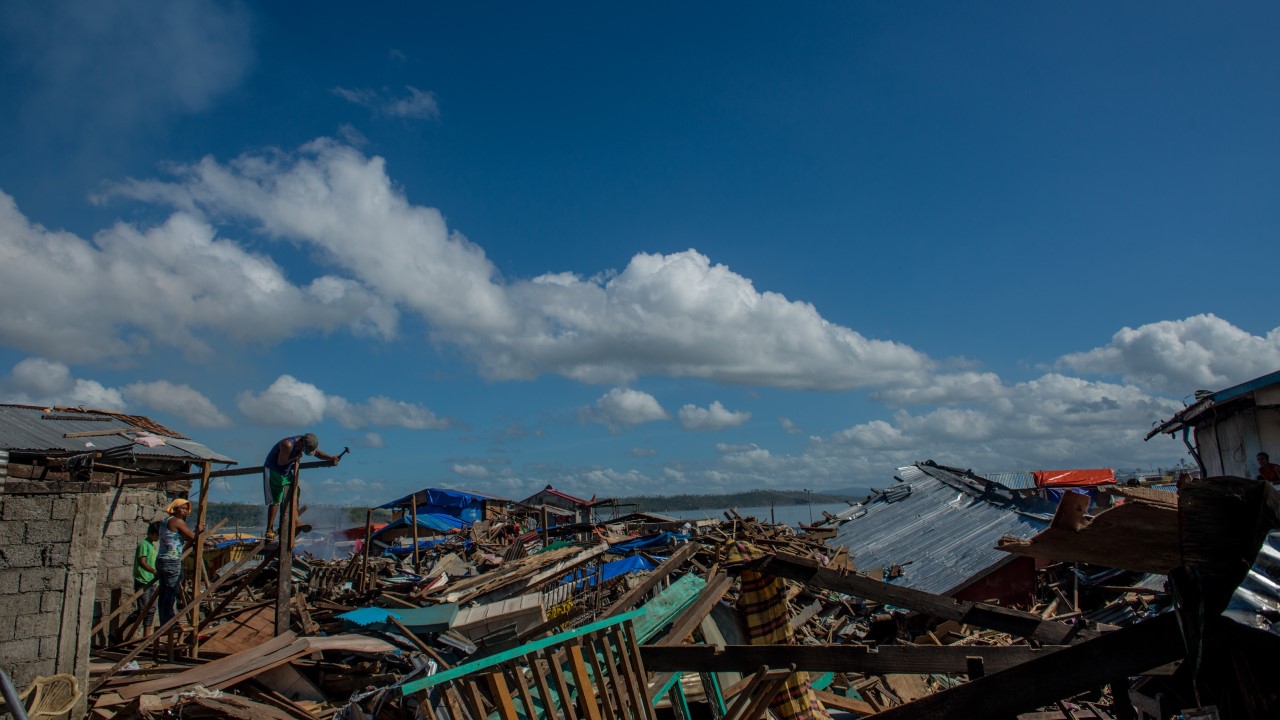
Super Typhoon Haiyan (Yolanda) devastated the central Philippines in November 2013. Warming oceans have affected the intensity of tropical storms. Photo credit: ADB.
The planned ASEAN Climate Finance Policy Platform will enable knowledge exchange, generate evidence and build capacity, and develop policy frameworks.
The climate crisis continues to worsen, making it increasingly urgent for countries to adapt to extreme weather and other adverse impacts. Yet, adaptation efforts face many bottlenecks, primarily the lack of finance. This gives central finance agencies a critical role in mobilizing public and private funds for climate action and building resilience.
In Luang Prabang yesterday, the High-Level Policy Dialogue of the ASEAN Finance Ministers explored establishing an ASEAN-wide platform, with the support of the Asian Development Bank (ADB), to help finance ministries strengthen their role in climate action and incorporate climate risks into fiscal planning and management.
“Climate change is the most urgent issue facing Southeast Asia,” said ADB President Masatsugu Asakawa at the opening of the policy dialogue. “This platform will strengthen economic and fiscal policies for climate action in the region.”
The planned ASEAN Climate Finance Policy Platform will be supported by technical assistance from ADB.
Growing adaptation needs
A new report from the World Meteorological Organization (WMO) shows that 2023 was the warmest year on record with the global average near-surface temperature at 1.45 °Celsius above the pre-industrial baseline. Heatwaves, floods, droughts, wildfires and tropical cyclones intensified across the world, with devastating effects on Southeast Asia and other climate-vulnerable regions.
In a 2023 report, the United Nations Environment Programme (UNEP) finds that the adaptation finance needs of developing countries are 10 to 18 times as big as international public finance flows, which is more than 50% higher than the previous range estimate. The funds required for adaptation in developing countries are now estimated to be between $215 billion and $387 billion per year this decade.
In response to the crisis, finance ministers from more than 90 countries have joined the Coalition of Finance Ministers on Climate Action to promote national climate action, especially through fiscal policy and the use of public finance.
In Southeast Asia, increasing numbers of ASEAN countries are integrating climate risks into public investment and financial management, with the role of finance ministries becoming increasingly pivotal in addressing climate-related fiscal risks and mobilizing climate finance. Several ASEAN countries are either members or observers of the Coalition of Finance Ministers on Climate Action. The plan to launch an ASEAN Climate Finance Policy Platform would extend discussions on climate-related issues relevant to Southeast Asia and disseminate good practices from the coalition.
A platform for increased collaboration
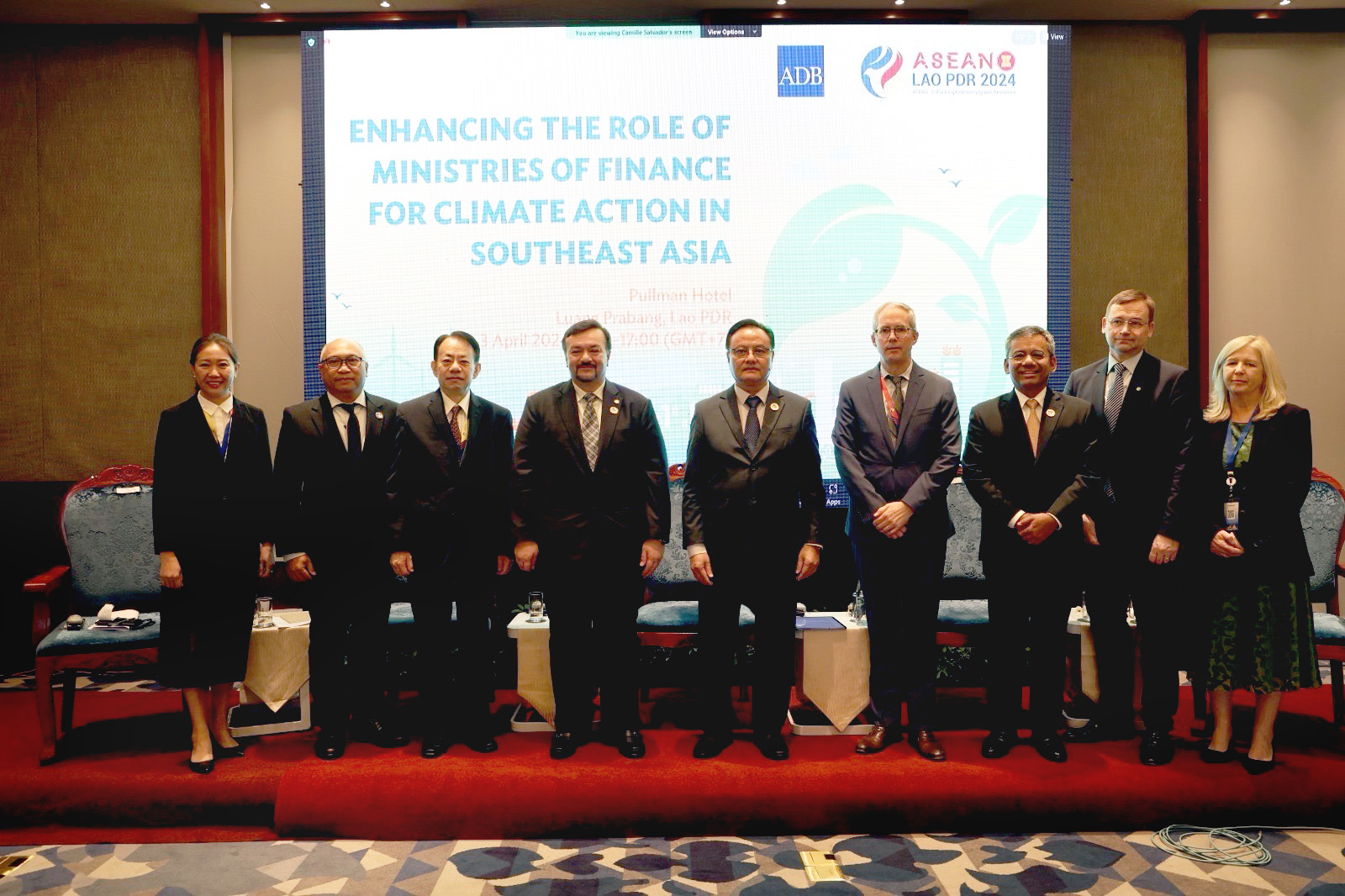
The high-level policy dialogue was convened on the sidelines of the 11th ASEAN Finance Ministers and Central Bank Governors’ Meeting in Luang Prabang to discuss how the role of ministries of finance may be enhanced for climate action in the region. It was hosted by Lao Minister of Finance Santiphab Phomvihane. Malaysian Minister of Finance II Amir Hamzah Azizan and Indonesian Vice Minister of Finance Suahasil Nazar also participated.
The dialogue supported the “Enhancing Connectivity and Resilience” theme of the ASEAN 2024 chairmanship of the Lao People’s Democratic Republic (Lao PDR). The keynote presentation was by Pekka Moren, Special Representative of the Minister of Finance, Finland, and Co-founder of the Coalition of Finance Ministers for Climate Action.
The finance ministers discussed key challenges and priorities and shared experiences and lessons in mainstreaming climate action into their strategies, policies, and instruments.
ADB will work with ASEAN ministers and their representatives to develop the concept and scope of the ASEAN Climate Finance Policy Platform . The plan is to enable knowledge exchange through evidence-based policy dialogue, generate evidence and build capacity, and develop and operationalize policy frameworks.
Increased cooperation among ASEAN ministries of finance is expected to help scale up climate action and build a community of support.
